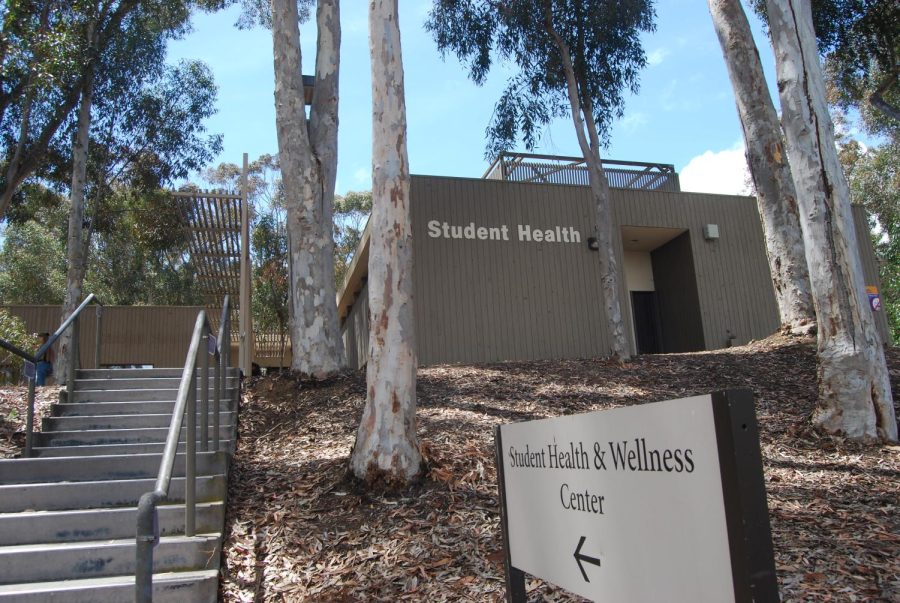Naloxone Distribution Project Launches at UC San Diego
Photo by Sophie Nourbakhsh/ UCSD Guardian
May 8, 2023
This Spring Quarter, UC San Diego’s Health Promotion Services launched a campus-wide naloxone distribution zone, making naloxone nasal spray and fentanyl strips available for pick-up from the Student Health Services building.
According to UCSD Health, fentanyl is one of the largest causes of drug overdoses in America, as even minuscule amounts, a fraction of a gram, can lead the respiratory system to cease. In San Diego County, there have been over 1,722 documented cases of opiate overdose death, with the vast majority of accidental overdoses occurring in those aged 25 to 34. The drug is highly lethal in small amounts and is commonly laced with other substances such as heroin, cocaine, and methamphetamine.
Naloxone is one medication that can be self-administered to reverse opioid overdoses. Specifically, fentanyl overdose cases have been a growing issue within San Diego County for the past few years, with Mayor Todd Gloria issuing an executive order in 2022 to curb the effects of the crisis.
Peter Davidson, associate professor in the Department of Medicine at UCSD School of Medicine, emphasized the fatal effects of opioid use.
“Opioid overdoses cause the largest number of accidental and avoidable deaths [and the] human toll of drug addiction is devastating,” Davidson said. “Using naloxone to prevent opiate overdoses can and has saved many lives.”
UCSD researchers who studied those participating in opioid abstinence programs believe that the carrying of naloxone should be destigmatized in order to push towards a safer community and raise overall awareness for the opioid crisis.
Request forms, informational guides, individualized services, and resources are all available on HPS’s website to assist with learning more about harm reduction. In order to request the naloxone and fentanyl strip test kits, students must first watch an informational video on the common symptoms of an overdose and how to properly administer the medication if treatment is needed, followed by a set of checkpoint questions to reinforce understanding. Pickup is located at the Student Health Services Building, across from Price Center, every Wednesday through Friday from 1 p.m. to 4 p.m.
The naloxone, testing kits, and the project’s title originated from the Naloxone Distribution Project, a California Department of Health organization designed to distribute opioid overdose antagonists and testing kits to public universities.
NDP is one of many school-wide efforts to keep campuses safe. The Campus Opioid Safety Act, SB 367, was put into effect in January 2023, requiring both California State Universities and California community colleges to provide educative and preventative information to students regarding opioid overdose and its overdose protection procedure, as well as provide free naloxone on campus. Since then, the nearly 200 California public community colleges and CSUs have been required to offer free test kits and antidotes to students. Although the UC system is not included in this legislation, eight of the 10 UC campuses have requested kits from the NDP.
Carrying naloxone with oneself proves to be a potentially life-saving action. For those in need of care, UCSD Health offers emergency health services and a substance use disorder care clinic with addiction recovery services for substance use, including opiates.
















